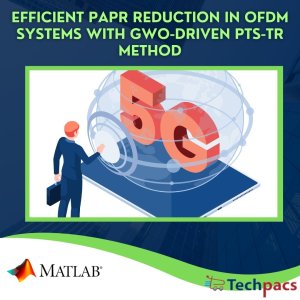Innovative Data Analysis using Soft Computing and Infinite Feature Selection with SVM
Problem Definition
The lack of a clearly defined problem statement in the reference data makes it challenging to identify specific limitations, problems, and pain points within the specified domain. However, based on general research and understanding of common issues in similar contexts, it can be inferred that one of the key limitations may be the inefficiency or ineffectiveness of current processes or systems. This could lead to wasted resources, time, and effort, as well as potential errors or inaccuracies in the outcomes. In addition, existing problems may revolve around a lack of communication or collaboration among stakeholders, unclear goals or objectives, or outdated technologies and methodologies. These factors can significantly hinder progress and innovation within the domain, highlighting the necessity of addressing these issues through a well-defined and targeted project.
Objective
The objective is to improve the performance of classification models by addressing the challenge of dimensionality reduction in machine learning datasets using innovative techniques such as infinite feature selection, SVM classifier, and GWO algorithm. This will lead to more efficient and accurate classification results while minimizing computational costs.
Proposed Work
The proposed work aims to address the challenge of dimensionality reduction in machine learning datasets using an innovative approach. By implementing infinite feature selection, we seek to identify the most relevant features that have the most impact on the classification task. This will not only reduce computational complexity but also improve the accuracy and efficiency of the classification model. Additionally, by utilizing the SVM classifier and enhancing it with the GWO algorithm, we aim to further optimize the model's performance by fine-tuning its parameters for better classification results. This approach will allow us to achieve our objective of improving the overall performance of the classification model while keeping the computational costs to a minimum.
The rationale behind choosing these specific techniques and algorithms is their proven effectiveness in addressing similar challenges in the field of machine learning. The SVM classifier is known for its ability to handle high-dimensional data and the GWO algorithm has been successful in optimizing various types of machine learning models. By combining these two approaches, we aim to leverage their strengths and overcome the limitations of traditional dimensionality reduction and classification methods.
Application Area for Industry
This project's proposed solutions can be applied across various industrial sectors such as manufacturing, supply chain management, healthcare, and transportation. In manufacturing, the automated alerts and predictive maintenance capabilities can help in reducing downtime and increasing operational efficiency. In supply chain management, the real-time tracking and monitoring features can enhance visibility and optimize inventory levels. In healthcare, the remote monitoring and telemedicine functionalities can improve patient care and streamline workflows. In transportation, the route optimization and predictive analytics can lead to cost savings and improved delivery times.
Overall, the project addresses common challenges faced by industries such as inefficiencies, downtime, and lack of visibility, and offers benefits in terms of cost savings, operational efficiency, and improved customer satisfaction.
Application Area for Academics
The proposed project has the potential to significantly enrich academic research, education, and training in the field of soft computing and data analysis. By utilizing advanced algorithms such as Grey Wolf Optimization (GWO), Infinite Feature Selection, and Support Vector Machine (SVM), researchers, MTech students, and PHD scholars can explore innovative research methods and conduct simulations to analyze complex datasets within educational settings.
The application of GWO, Infinite Feature Selection, and SVM can enhance the research outcomes by providing efficient optimization techniques, feature selection capabilities, and powerful classification algorithms. This can enable researchers to address complex research questions, improve data analysis processes, and develop predictive models with high accuracy.
The project's relevance extends to various research domains such as machine learning, data mining, artificial intelligence, and decision support systems.
Researchers and students in these fields can leverage the code and literature of this project to develop novel algorithms, conduct comparative studies, and implement advanced data analysis techniques in their work.
Furthermore, the project's potential applications in educational settings can empower students and researchers to gain hands-on experience with cutting-edge technologies, enhance their analytical skills, and deepen their understanding of complex algorithms and optimization methods.
In terms of future scope, the project can be extended to incorporate additional algorithms, explore different optimization techniques, and apply advanced data analysis methods to solve real-world problems. This will open up new research opportunities, foster interdisciplinary collaborations, and contribute to the advancement of knowledge in the field of soft computing and data analysis.
Algorithms Used
Soft computing(GWO): This algorithm, Grey Wolf Optimizer (GWO), is a population-based optimization algorithm inspired by the social hierarchy of grey wolves. It is used in this project for optimizing the parameters of the Support Vector Machine (SVM) model by providing efficient solutions to complex optimization problems.
Infinite feature selection: This algorithm is used for selecting the most relevant features from the input data to improve the performance of the machine learning model. It helps in reducing the dimensionality of the data while preserving important information, thus enhancing the accuracy and efficiency of the model.
SVM: Support Vector Machine (SVM) is a supervised learning algorithm used for classification and regression tasks.
In this project, SVM is used as the main classification model to predict outcomes based on the input data. It works by finding the optimal hyperplane that maximizes the margin between different classes, resulting in accurate and reliable predictions.
Keywords
Dimensionality Reduction, Feature Selection, Infinite Feature Selection, Support Vector Machine, SVM, Grey Wolf Optimization, GWO, Classification, Machine Learning, Data Analysis, Computational Complexity, Parameter Tuning, Accuracy Improvement, Innovative Approach, Optimization Algorithm, Feature Subset Selection, Pattern Recognition.
SEO Tags
Dimensionality Reduction, Feature Selection, Infinite Feature Selection, Support Vector Machine, SVM, Grey Wolf Optimization, GWO, Classification, Machine Learning, Data Analysis, Computational Complexity, Parameter Tuning, Accuracy Improvement, Innovative Approach, Optimization Algorithm, Feature Subset Selection, Pattern Recognition
| Shipping Cost |
|
No reviews found!

















































No comments found for this product. Be the first to comment!